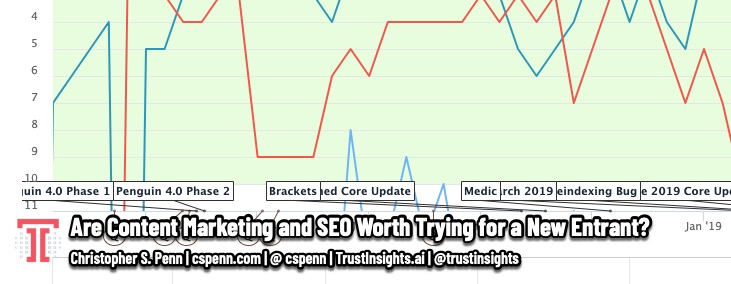
Brett asks about whether the learning curve for the average new entrant in content marketing is even worth trying. Given the complexity of competition and the likelihood that existing market competitors are more practiced, is it even worth doing?
The answer isn’t necessarily easy, and is dependent on your content marketing goals. Are you creating content for search purposes? For social sharing? For customer service? Content marketing has functional applications at every part of the overall customer journey, and some types – such as content in support of service – is something nearly every company should engage in.
For the purposes of this discussion, let’s restrict our view of content creation to search engine optimization (SEO), to ranking for organic search and attracting new audiences with SEO. A little while back, I created this diagram for the Trust Insights newsletter:
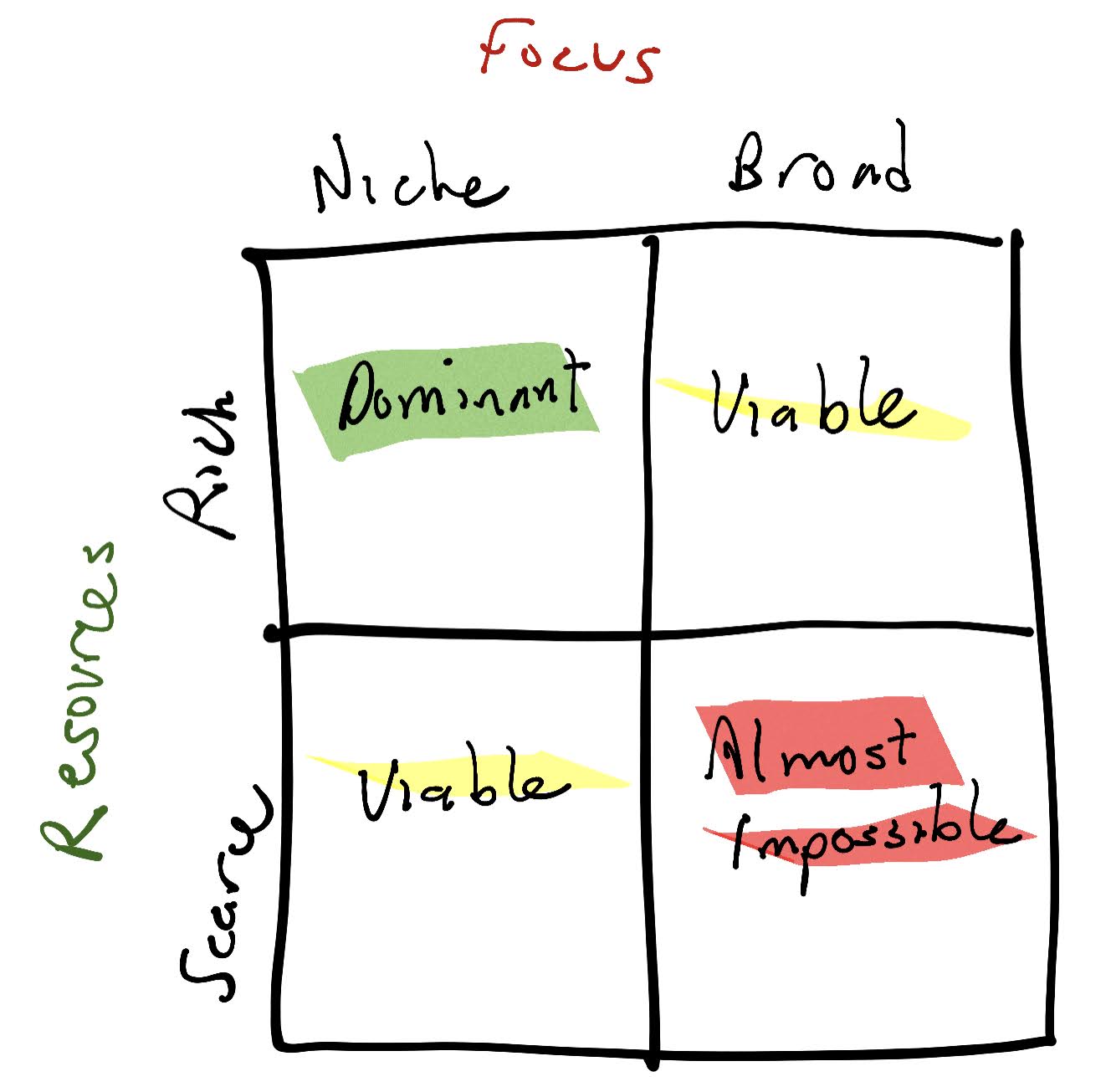
This overly simplified matrix essentially says:
- If you have resources to throw at SEO and you’re in a search niche, you can become the dominant player
- If you have resources to throw at SEO and you’re in a highly competitive market, SEO will work for you but it probably won’t be magical
- If you don’t have resources to throw at SEO and you’re in a search niche, again it’ll work for you but won’t deliver massive results
- If you don’t have resources to throw at SEO and you’re in a highly competitive market, SEO is going to be a tough haul to get any results out of
This framework works in general but there’s a piece missing, a consideration that’s not evident (mostly because drawing multidimensional matrices is a pain in the butt):
Volatility.
What does this mean, in the context of SEO?
Search Ranking Volatility
Let’s take a look at a well-established search, one that has years of data: Google Analytics. When we look at the top search rankings over the past couple of years, what do we see?
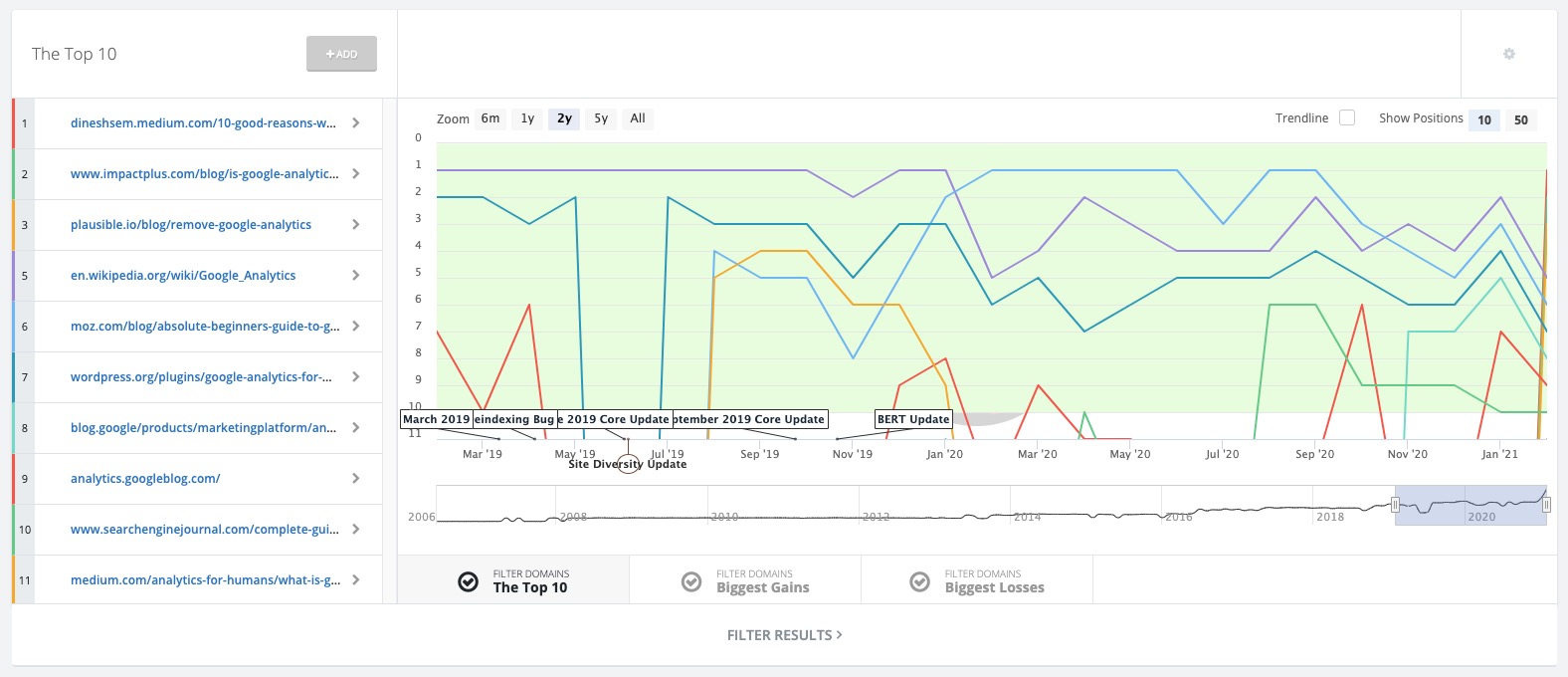
In general, the winners tend to remain the winners over the years; the top slots don’t move around all that much. This is a mature term without a ton of volatility – and that suggests that dislodging a winner might be quite difficult.
Contrast that with the search term AI in marketing:
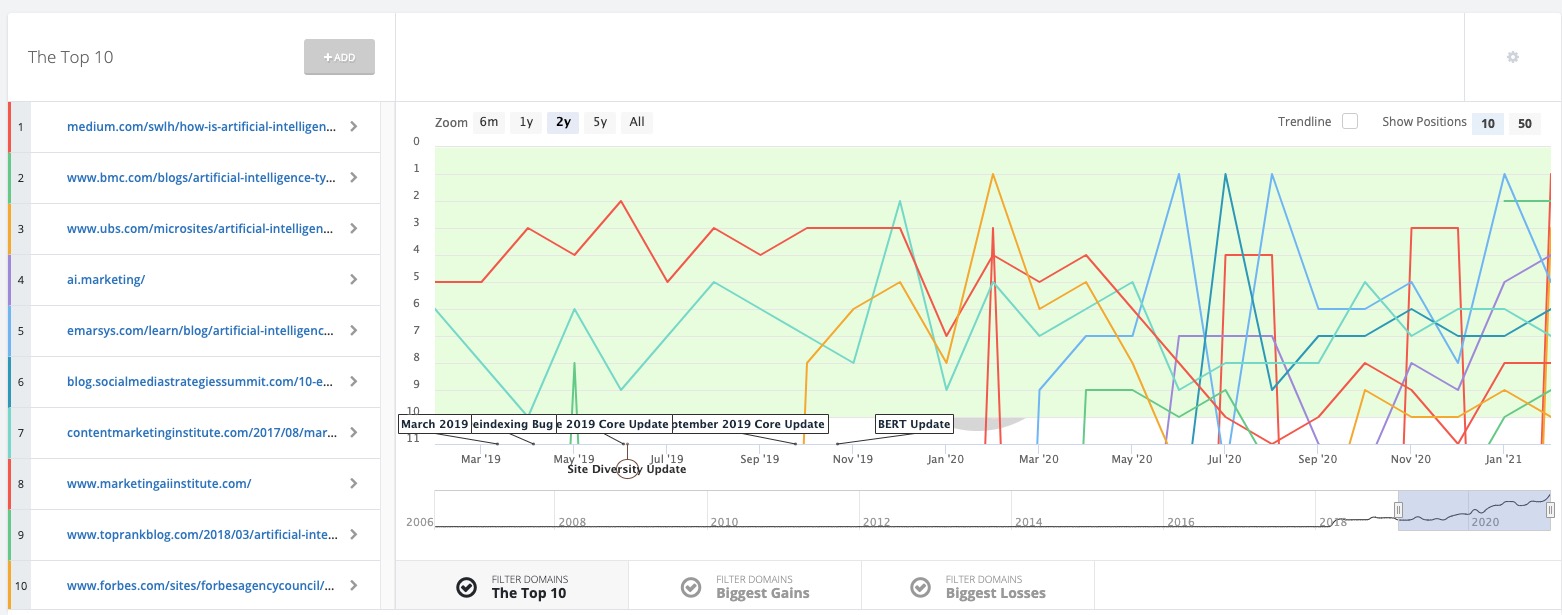
This looks like spaghetti. There’s no clear winner, no dominant player or players that are keeping everyone else out of the top results. There’s quite a lot of volatility in the rankings.
When there’s no clear ranking winner, that means the winner’s edge, whatever it is, isn’t firm. Based on all the possible variables that go into search rankings, the winners don’t have it locked down – and that means there’s an opportunity for you to also take a shot.
What causes that volatility? I don’t know. No one does, because Google’s algorithm is a black box, even to Google. Such is the nature of deep learning AI – the models that create these outcomes are not models we can easily deconstruct. But one thing worth noting is that as Google rolls out new, more powerful search models based on AI, we see changes in volatility.
Take a look at the Google Analytics search phrase, but over a five-year time span:
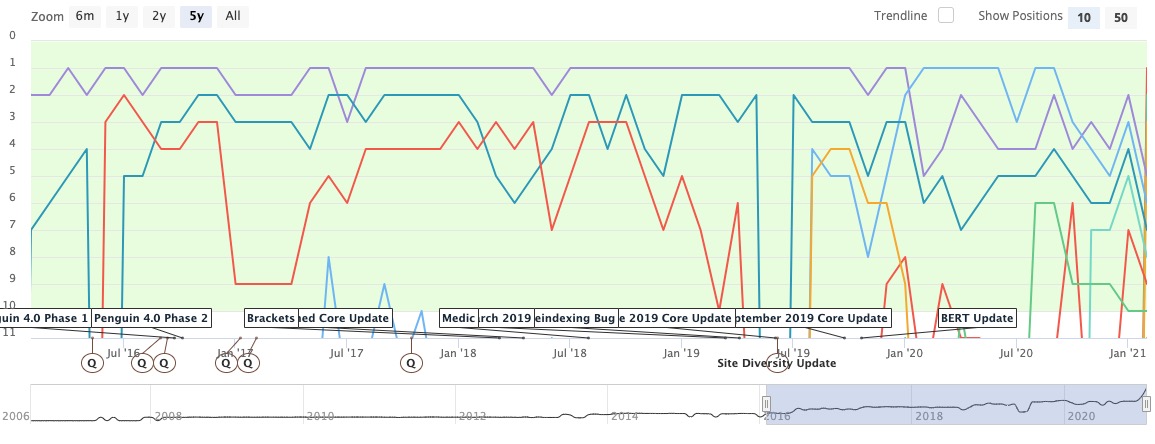
Before the Site Diversity and BERT updates in late 2019, we see almost no major variations in the winners. After that date, we see much more volatility – and the pace of volatility, the pace of change, appears to be increasing.
Volatility is Opportunity
Whatever your business, check the volatility of the search rankings to see how little or much opportunity there is in your space. You may find that some key terms have little volatility; those are terms that, if you’re not in the top 3, are probably not worth the effort. Other key terms may have substantially more volatility and thus more opportunity – you might even be able to tackle a market leader and win, as long as you’re able to produce content favorable to Google’s algorithm.
Remember that Google has shown us, in clear detail, what constitutes favorable content in their publication of the Search Quality Rating Guidelines. This is one of their training data sets they use to teach their AI how to rank and classify search results. In terms of the content you create, adhere to these guidelines and you’ll stand the best chance of building content Google will rank favorably.
The nature of AI and AI models means that where there was once stability, there’s now volatility as the models learn and change. So to answer Brett’s question, is it worth it to try, the answer is a qualified yes. As long as you’re able to fulfill user intent with your content, you have opportunities to rank in SEO. And if your organization doesn’t have the ability to create fulfilling user content, you have bigger problems than content marketing – you have a fundamental customer experience problem if you have no idea what customers want.
You might also enjoy:
- Mind Readings: You Need Passwords for Life in the Age of Generative AI Fraud
- Almost Timely News, January 14, 2024: The Future of Generative AI is Open
- You Ask, I Answer: AI Music Collaborations and Copyright?
- Almost Timely News, Febuary 18, 2024: From Comment to Content
- Almost Timely News, February 11, 2024: How To Evaluate a Generative AI System
Want to read more like this from Christopher Penn? Get updates here:
 Take my Generative AI for Marketers course! |


Leave a Reply